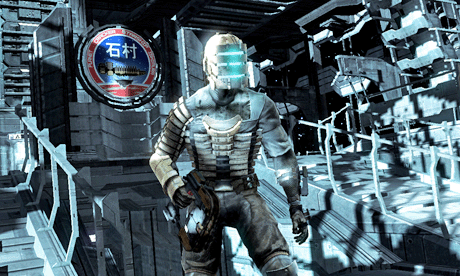 Dead Space: it has novels, comics and an animated movie. But what do these really add to the experience?
Dead Space: it has novels, comics and an animated movie. But what do these really add to the experience?It has become routine now. A few weeks after the announcement of any big new game release, there will be another thrilling revelation: a tie-in comic book series, a novel, a made-for-TV movie.
Inevitably, it will be a prequel, released a few weeks ahead of the game it accompanies, or it will slot into the timeline between subsequent titles in a major franchise. "We're excited by the opportunity to flesh out our backstory and give our fans more of an insight into the deep narrative," a producer will robotically intone. When of course, much of the excitement revolves around the marketing potential of the linear tie-in: every new story platform is an advert.
This used to be called merchandising, but now we must use the term "transmedia storytelling". Nowadays, developers are aiming to produce narratives so compelling that they transcend platform limitations; a high-tech realisation of Wagner's Gesamtkunstwerk concept. In a recent interview with GamesIndustry.biz, however, Epic's European territory manager, Mike Gamble, warned studios away from becoming obsessed with crossovers projects:
It's really easy to be distracted by shiny baubles, whether that be pre-vis on films, doing stuff for car manufacturers, whatever it happens to be. In the end you can end up chasing these things and your core business is then neglected.
But there are deeper problems beyond merely getting a bit distracted. A key issue is that the linear content is rarely of a similar quality to the source material. Assassin's Creed the game is an astonishingly rich and detailed interactive universe, but the novelisation, Assassin's Creed: Renaissance, is lumbering, stilted and repetitive.
Original post guardian.co.uk
Further excerpt:
"But so far, another core failing has been the sense of platform dissonance. Transmedia is supposed to be about telling a story seamlessly across multiple formats – this is the vision that guided, say, Tim Kring's fascinating project Conspiracy For Good, and the ARGs accompanying the likes of Portal 2 and TV series Numb3rs.
But in the mainstream video game sector, novelisations and movie tie-ins tend merely to extend background narrative detail – nice for hardcore fans, but never a fundamental element of some over-arching story experience. There is also rarely a sense of interaction between gamers and adaptations..."




No comments:
Post a Comment